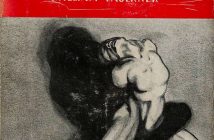Is there anything other than theatre that can so perfectly demonstrate the difference between sex and gender? From legal reasons (women were not allowed to perform until the 1660s) to social commentary, gender identity and expression in theatre have been nuanced explorations since before the existence of our contemporary understandings of gender. Ancient Greek tragedy, Shakespearean comedy, the theatre has always been a space for experimentation and subversion of gendered expectations.
From the very beginning, it has been political. Although concepts concerning gender identity and expression were significantly different in ancient Greece, the social expectations between men and women in ancient Athens were relatively similar. Men were expected to individually and collectively uphold civic duties such as voting, paying taxes, and showing their presence in the public sphere; women’s expectation to be good mothers and wives assigned them very little public involvement, leaving them in the private sphere. Of course, in these times too, tragedy and comedy acted as commentary; gendered and sexual boundaries were often crossed and mixed as a Dionysian tradition.
However, many feminist scholars have pointed out that innate femininity was still portrayed for the entertainment and education of a male audience, among male producers and a male cast. Women tend to be strictly depicted as a radical otherness compared to assumed masculinity. Women tend to be self-sacrificing or purely vindictive, Aeschylus’s Agamemnon and Euripides’s Iphigenia in Aulis and Medea all serve as ideal examples. We shouldn’t forget that these plays were written in a male-centric environment, and many female characters served the purpose of maintaining these gender roles and cautioning men against the dangers of female autonomy.
Moving forward, an article about gender and theatre would not be worth much without mentioning Big Shak. William Shakespeare loved to experiment with gender expression, particularly in his comedies. Twelfth Night (a personal favourite of mine) and As You Like It both feature a female character, who disguises as a male character. Viola, who disguises herself as a eunuch named Cesario at Orsino’s court, shows tremendous flexibility when it comes to finding her bearings after a shipwreck and navigating through the romantic attraction that Olivia feels for her thinking that she is truly a man. Other jokes include Viola not being able to duel against a cowardly knight.
We could argue that Viola and Orsino’s attraction is one big joke where we laugh at how Orsino is gay but isn’t because Viola is really a woman, but that wouldn’t explain the clear homoerotic relationship between Sebastian and Antonio. Why use cross-dressing to explore homosexuality when it is already made very clear? Perhaps in both of these plays, Shakespeare was toying more with the malleability of gender identity and expression, rather than poking fun at the characters’ sexuality.
Moving forward yet again to the 19th century, The Father by August Strindberg is a wonderful example of how gender was and is represented in theatre. The father is a cavalry captain who is concerned with the well-being of his daughter and wants her to have a healthy outlook on life. Her mother, however, is more concerned with the mere possession of their daughter, and eventually, the father goes insane as he feels his daughter is being poisoned against him. This type of interrogation of gender roles is more about questioning the way things are, rather than preserving it: is the mother inherently the natural caregiver of a child? Should the father only provide from a distance?
Much of dramatic theatre nowadays question the way things are, and how they ought to be. We also have the opportunity to bring intersectional experimentation into theatre, Janice Okoh’s The Gift demonstrates this by dissecting not only the disadvantages of womanhood but black womanhood as well. It’s hard to say where the relationship between gender and theatre is going, but with the emergence of intersectional exploration, it can only get more nuanced, and much more interesting!




